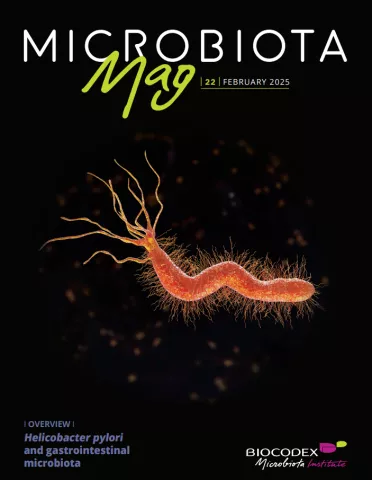
Microbiota 22 - February 2025
Dear readers,
Helicobacter pylori (H. pylori) is a pervasive bacterial infection, affecting nearly half of the global population and earning the distinction of being the most common bacterial infection worldwide. Classified as a group 1 carcinogen by the World Health Organization (WHO), H. pylori is a significant driver of precancerous and cancerous gastric conditions, including gastric adenocarcinoma.
In this issue, we aim to provide our readers with a comprehensive exploration of the latest research on H. pylori and its intricate relationship with the gastrointestinal microbiota. Professor Juozas Kupcinskas will also delve into the broader implications of H. pylori eradication, particularly its effects on the microbiome—both as a potential side effect of treatment and as a therapeutic avenue.
For decades, the prevailing belief was that H. pylori stood alone as the stomach’s sole microbial inhabitant. However, recent advancements in research technologies have illuminated the complexity of the gastric microbiome. Far from being a solitary actor, H. pylori has been shown to play a pivotal role in shaping the microbial environment of the stomach.
Interestingly, the eradication of H. pylori, while clinically essential in certain cases, has been found to have a transient and reversible impact on the gastric and gut microbiomes. This raises questions about the long-term implications of treatment strategies. Similarly, proton pump inhibitors (PPIs)–among the most widely used medications globally–have been shown to alter the gut microbiota’s structure. While these changes are well-documented, their clinical relevance remains a subject of ongoing investigation.
Through this overview, Professor Juozas Kupcinskas invites our readers to consider the evolving science surrounding H. pylori, its impact on the microbiome, and the broader therapeutic implications. By connecting these dots, we hope to foster a deeper understanding of the gastric ecosystem and its role in human health.
Enjoy your reading.


